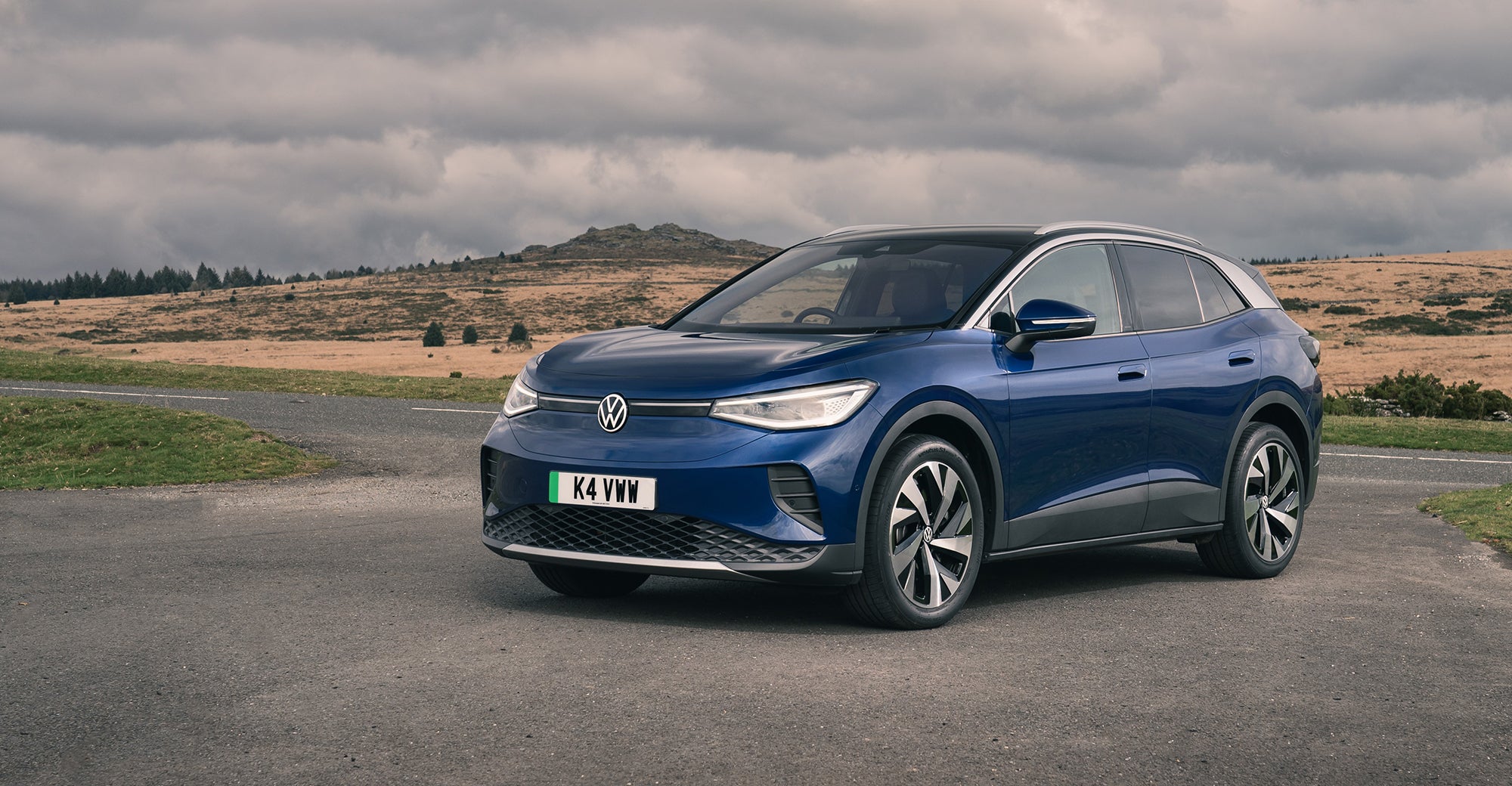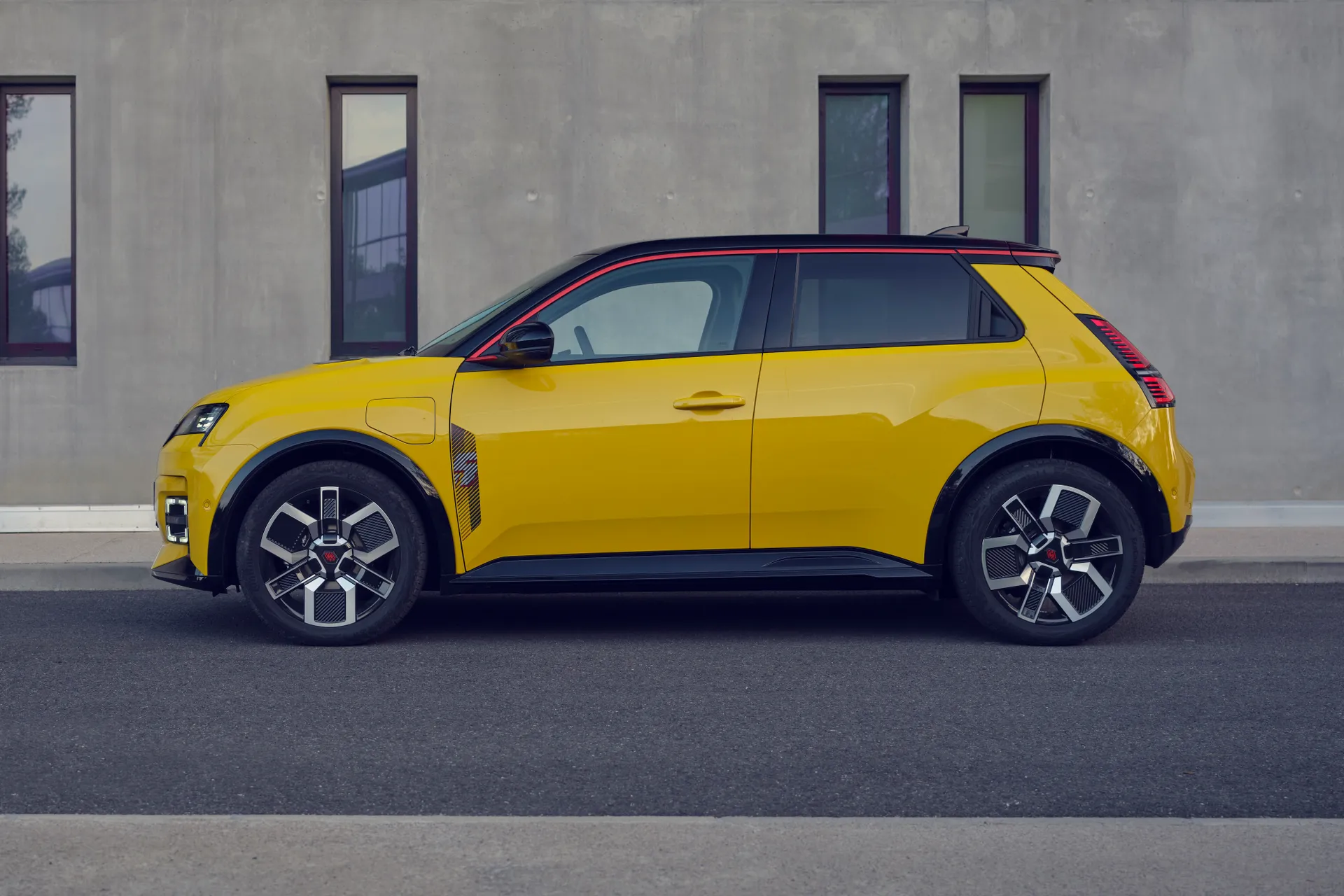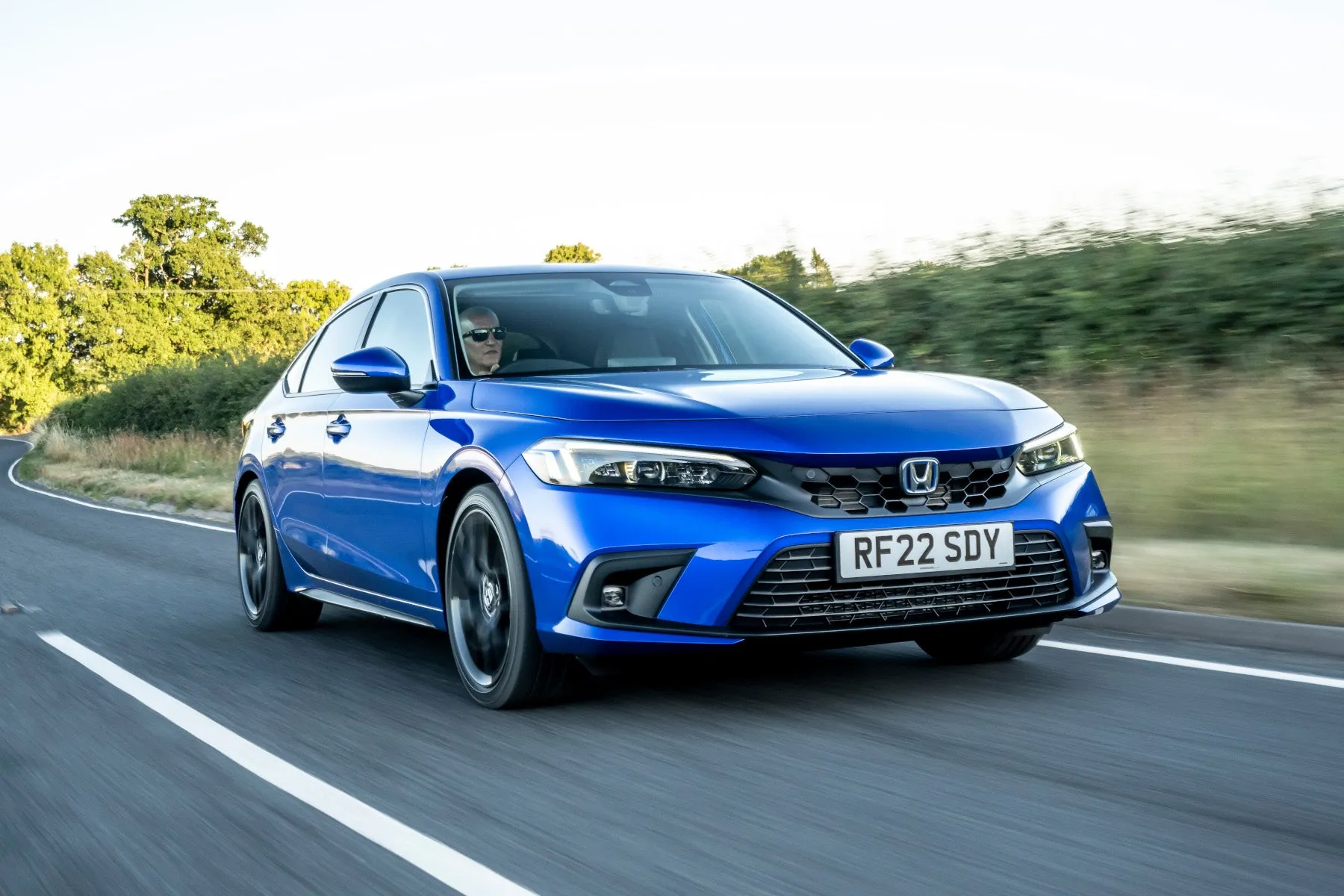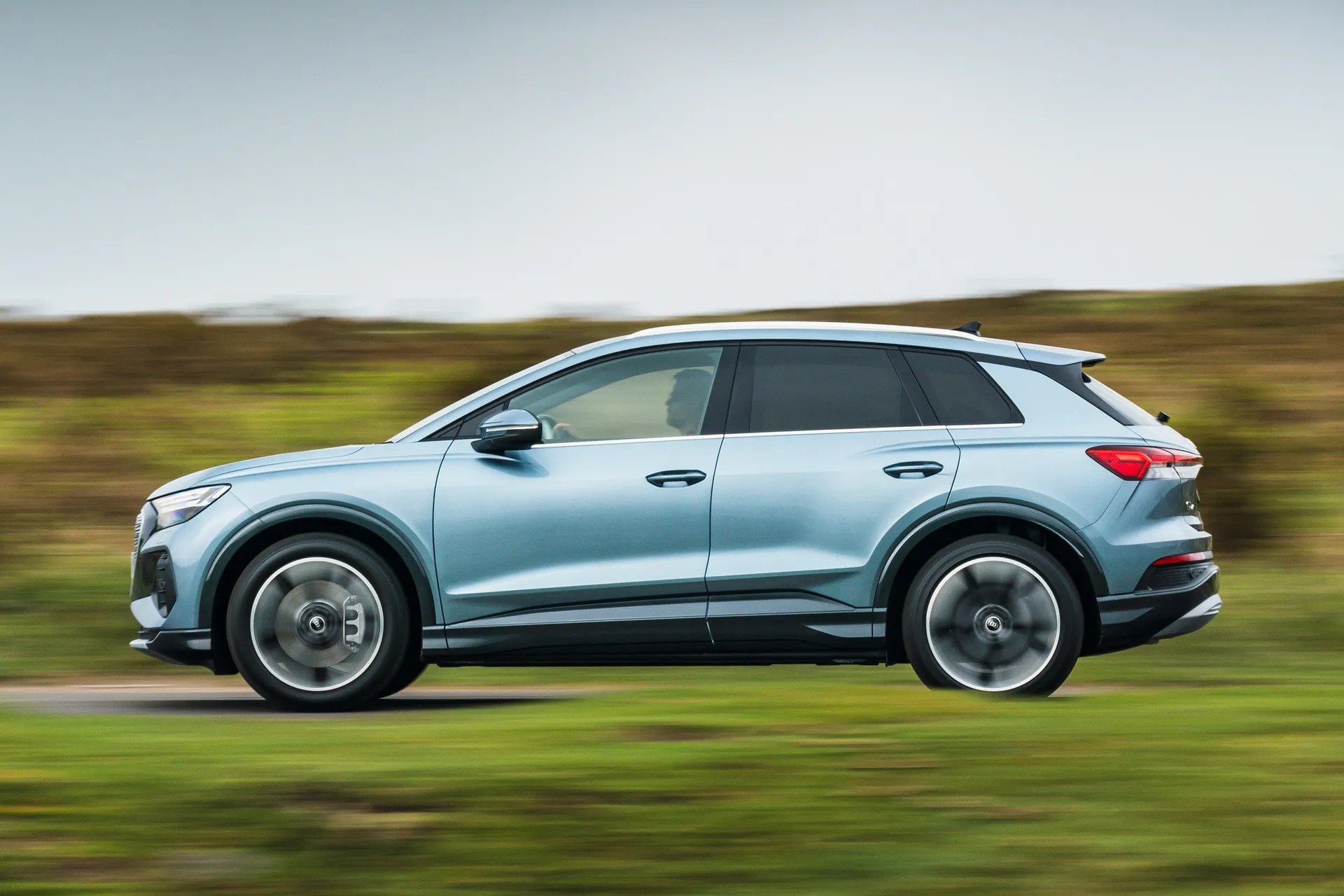Electric cars:

Electric cars: everything you need to know
With the sale of new conventional petrol and diesel cars ending in a few years in the UK, there's understandably been a huge surge in interest around electric cars.
Many potential buyers still have a lot of questions about EVs, which is where we come in. You'll find everything you need to know about buying and owning an electric car right here with heycar.
From questions about charging an electric car to which electric car has the best range, we're here to help. Our experts have driven all the latest electric cars too, with our independent reviews and buying guides helping you find the perfect EV that will fit in with your lifestyle. We can also help with the best electric car deals we've found. So read on to get up to speed on everything EV...
Electric car types explained
Pure electric cars
Electric vehicles, commonly known as EVs, are powered by electricity alone, with a battery power a motor or motors that propels the wheels. While EV range continues to improve, most models typically offer a range between 100 and 300 miles, though some can cover over 400 miles.
Plug-in hybrid cars
Plug-in hybrid vehicles (which are often referred to as PHEVs) combine battery power with a petrol engine. This means that they can run under electric power alone, while the petrol engine can kick in when the range is depleted. PHEVs use smaller batteries than electric cars, so they don't offer the same kind of range. However, PHEVs typically offer an EV range of 15 to 70 miles, varying by model.
Hybrid electric cars
Also referred to as self-charging hybrid cars, full hybrid cars charge by the engine and regenerative braking, while they have smaller batteries than both electric cars and PHEVs. Though they might have a limited electric-only range, this can make them really economical to run compared to a standard petrol car. Mild-hybrid cars are also available, though the small batteries and electric motor only assist the engine for improved fuel economy.
How do electric cars work?
In many ways, driving an electric car is exactly the same as driving a petrol or diesel car. You still get a steering wheel, pedals and a gear shifter.
Rather than a petrol or diesel engine sending power to the wheels, batteries send power to electric motors that drive the wheels. It's a relatively simple system that requires very few moving parts - just one or two motors fed by what is usually a rather large battery.
Probably the first thing that sticks out is how quiet electric cars are. An electric car's motor doesn’t roar into life like a petrol or diesel engine when you turn it on – there’s no noise. Instead, you usually get a light on the dash saying ‘Ready’ or words to that effect which might be accompanied by a warning tone when it switches on.
That lack of noise continues as you get underway. Electric cars are so quiet that an EU rule brought in in 2019 means they have to be fitted with an external noise-emitting device to warn pedestrians they’re approaching. Many EVs also emit a soundtrack internally for those who miss the aurul experience of a combustion engine car, but it can be turned off.
Aside from the lack of noise, the best electric cars are notable for how easy they are to drive. Electric cars produce maximum torque immediately so you get instant acceleration the minute you push your foot on the accelerator.
This low-down urge means that electric cars can get away with having only one gear, although some have more – the Porsche Taycan has a two-speed gearbox – so they drive like an automatic car. The linear way an EV accelerates is comparable to the feeling you get when an electric train builds speed.
Regenerative brakes on an electric car are another feature you’ll need to get used to. Regenerative brakes help recharge an electric car as it slows to a stop, which is one of the reasons EVs are more efficient in town – where you do lots of stop-start driving – than on the motorway.
Regenerative brakes also mean you can drive most electric cars using the accelerator pedal alone, the minute you take your foot off the pedal the car starts slowing. Often you can adjust the severity, so it loses speed gradually or with a force comparable to pressing the brakes. In theory, sudden stops are the only time you'll need to use the actual brakes.
Benefits and advantages of driving electric cars
The primary benefit of driving an electric car is that it produces no exhaust emissions, so it makes cities a nicer place to live and a safer place to breath. Some of the UK’s biggest cities have failed to meet EU targets on the harmful NO2 emissions produced by diesel vehicles and electric cars represent a big step towards achieving these targets.
With many cities introducing Clean Air Zones, with those driving into these areas required to pay a fee, a big advantage of owning an electric car in one of these areas is that you'll be exempt from these charges.
Of course, nobody can claim that electric cars are truly green: how eco-friendly they are depends entirely on the mix of renewable sources in your electricity grid. But, generally speaking, they are better for the environment in their use than burning pure fossil fuels in an engine.
Another benefit of an electric car is that you'll often find dedicated parking bays for EVs with free parking, while some councils offer free annual parking permits for electric car owners.
Aside from being cheaper to run, cleaner and exempt from paying emissions tariffs, as well as road tax – electric cars should be a lot more reliable than a conventional petrol or diesel.
That’s because they have far fewer moving parts – in a nutshell, there’s a lot less to go wrong. Even their batteries, which do degrade over time, have been found to keep at least 70% of their capacity after 10 years.
Disadvantages of driving an electric car
Price and range are probably the two biggest stumbling blocks you need to clear before you decide to buy an electric car.
Government legislation has changed recently (and not for the better) and is now offering a £1500 grant on electric cars under £32,000 to tempt buyers. However, the reduction in the grant amount (it was £2500) and the cap on the price that you can use the grant on does limit the amount of electric cars you can apply this reduction to. The popular Volkswagen ID.3 starts at £32,200 for example, which is some £7700 more than an entry-level Volkswagen Golf.
To offset this differential, manufacturers tend to load their electric cars with lots of equipment.
Nevertheless, they still can’t compete with the range you’ll get out of a petrol or diesel car. Even a performance model like the Golf GTI should get a range of more than 400 miles from its 50-litre petrol tank – better than the 336 miles you’ll get out of a top-of-the-range ID.3.
It's also worth considering your charging situation. If you can easily charge your car at home, via a wallbox or a three-pin socket, then your EV will be much cheaper to run than a petrol or diesel car. But if you have to rely solely on public charging, that can often prove quite expensive, eating away at your fuel savings.
Popular electric car reviews on heycar
Trustpilot Reviews
Get our latest advice, news and offers
Keep me updated by email with the latest advice, news and offers from heycar.
By submitting you agree to our privacy policy
















